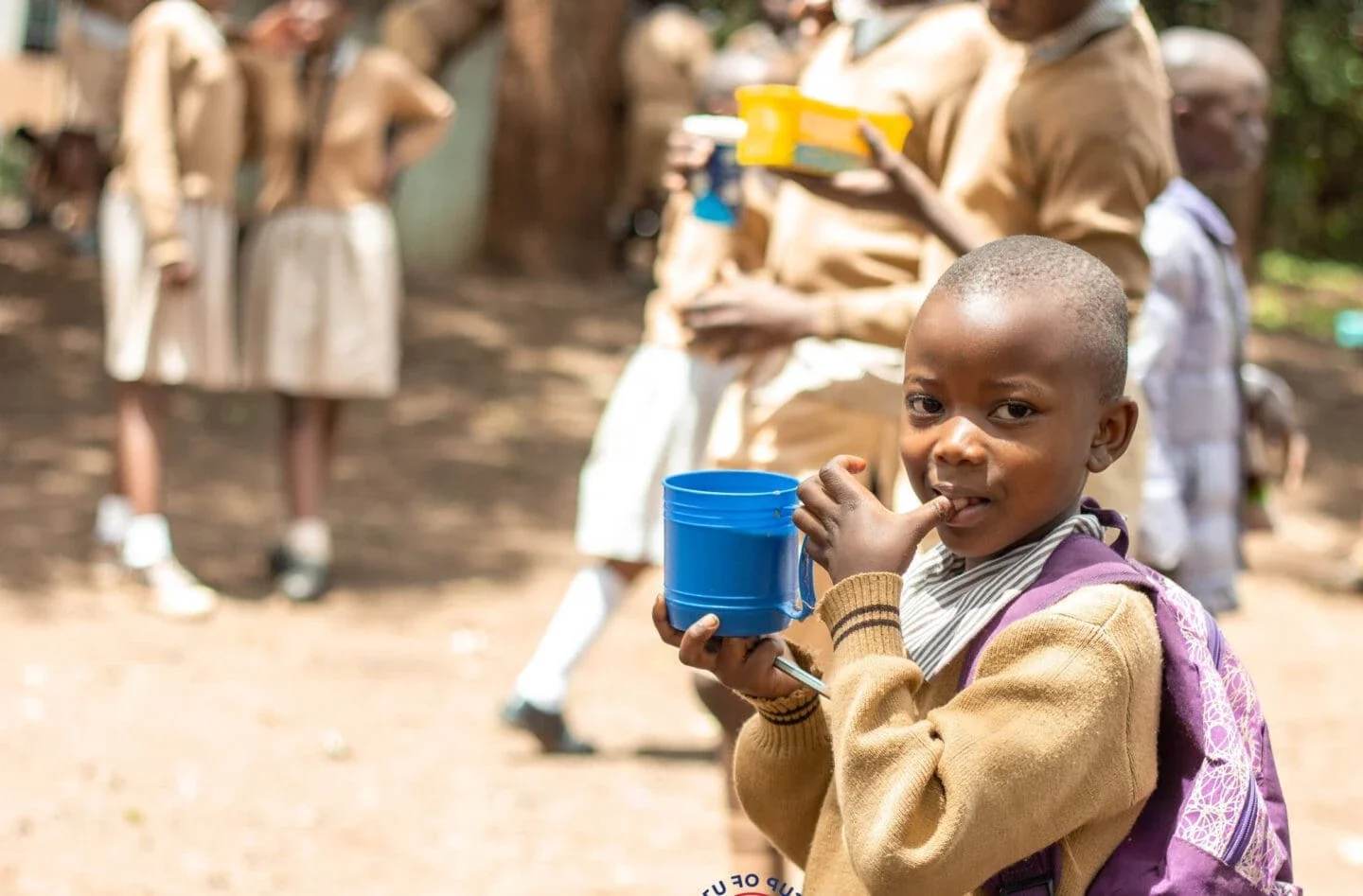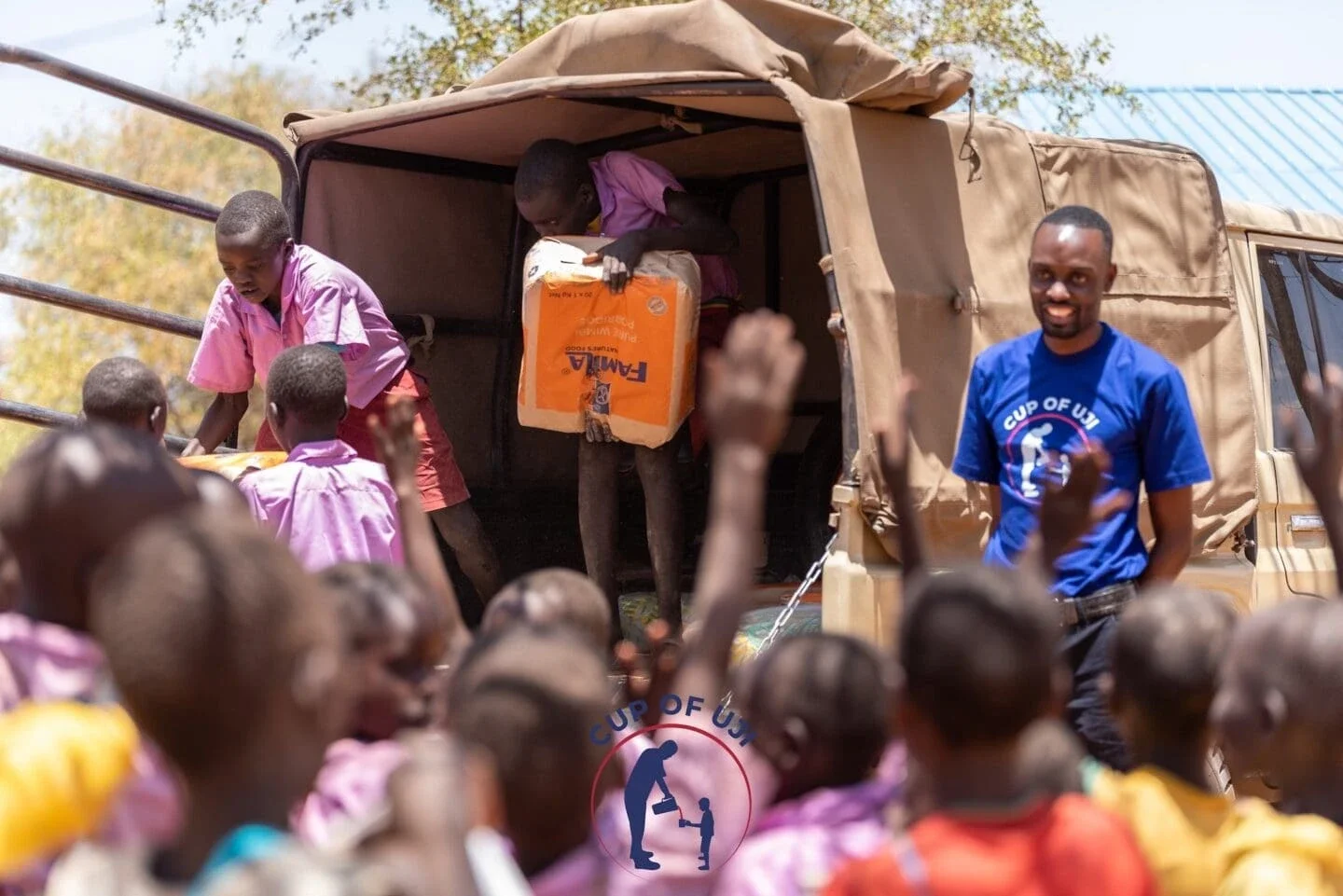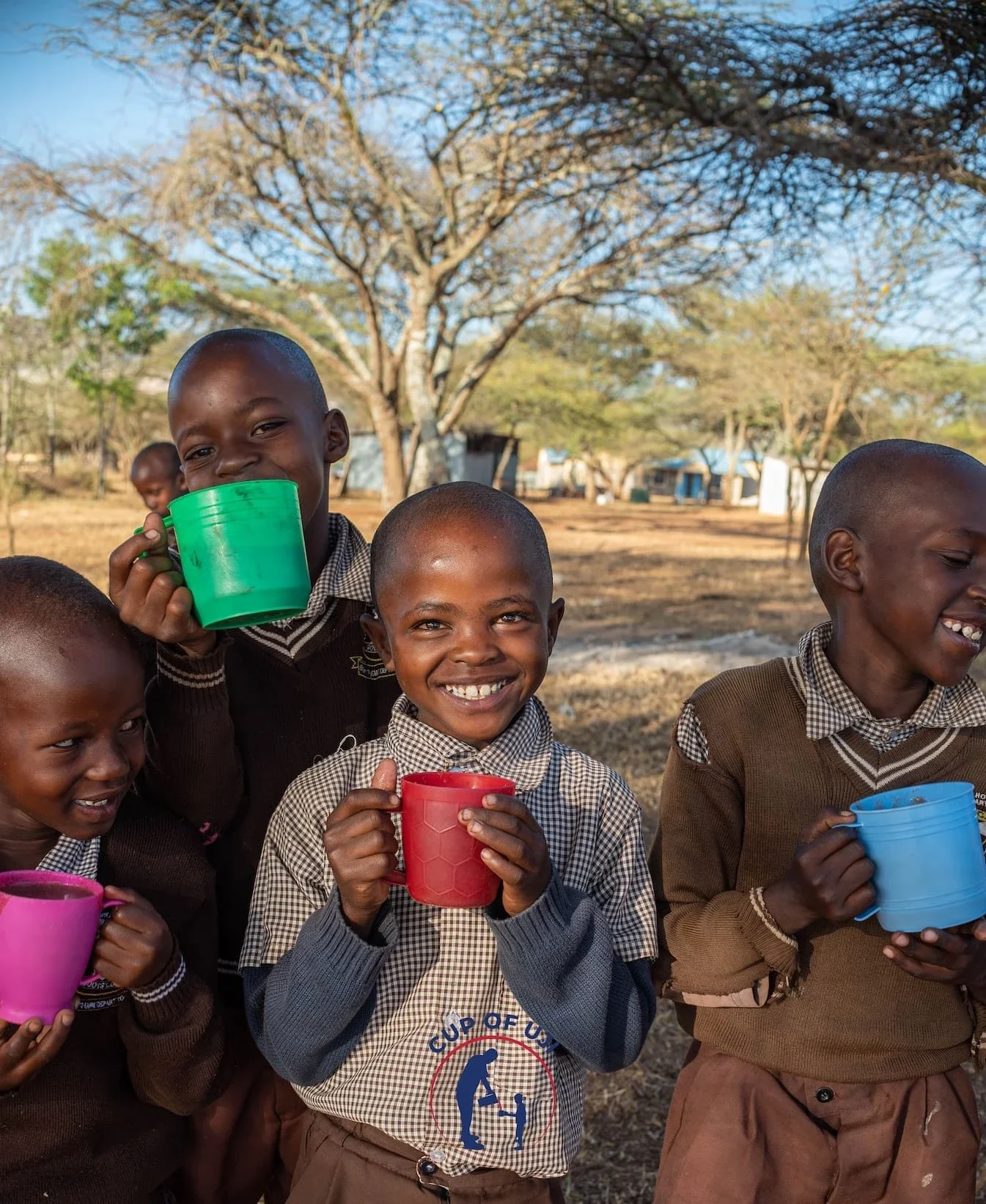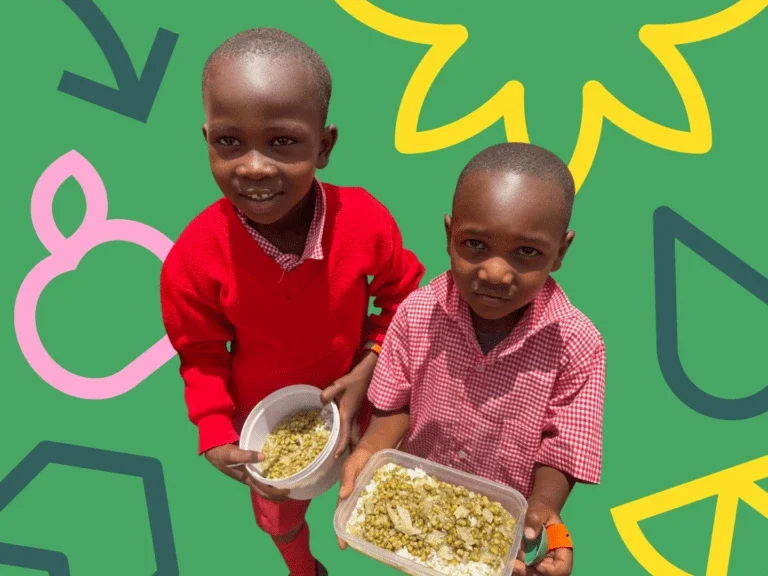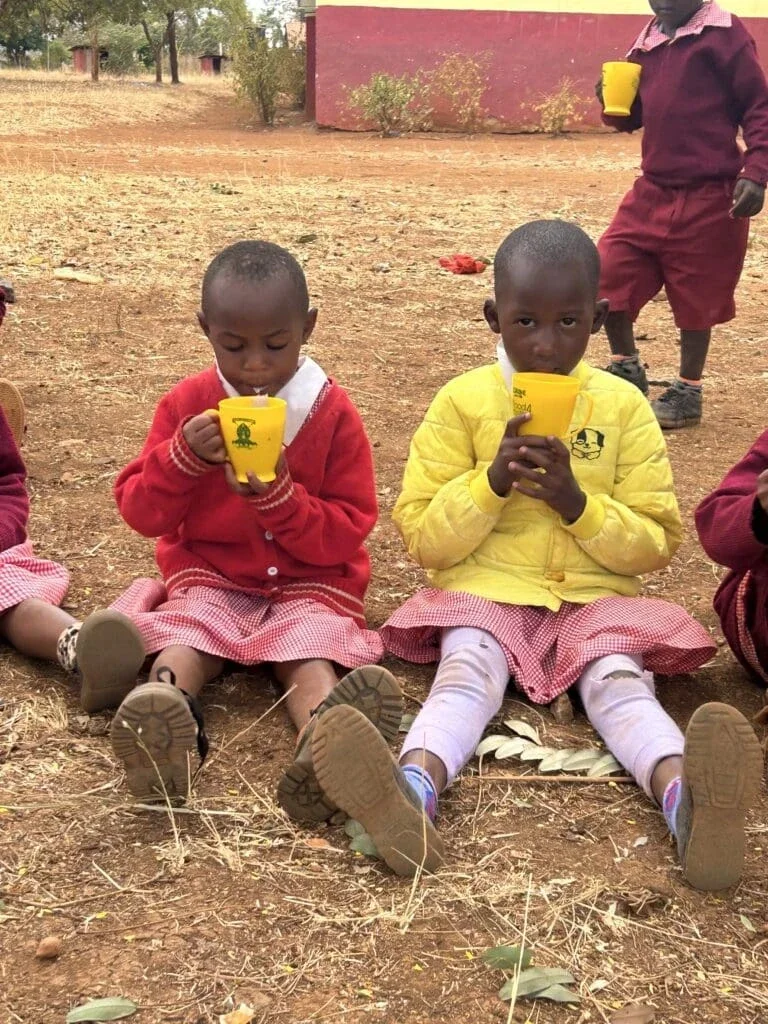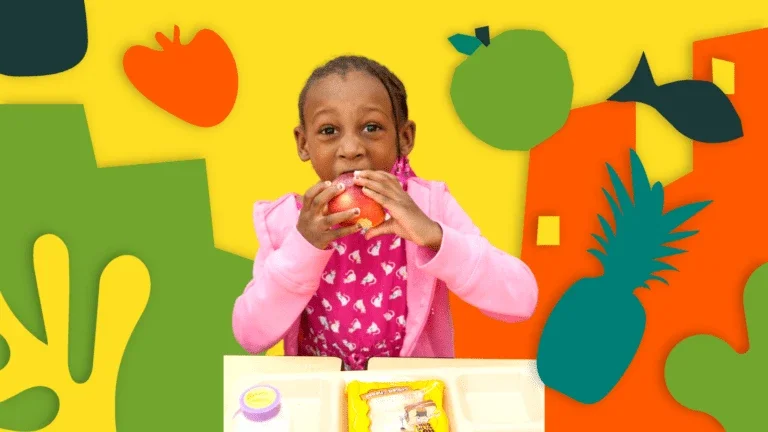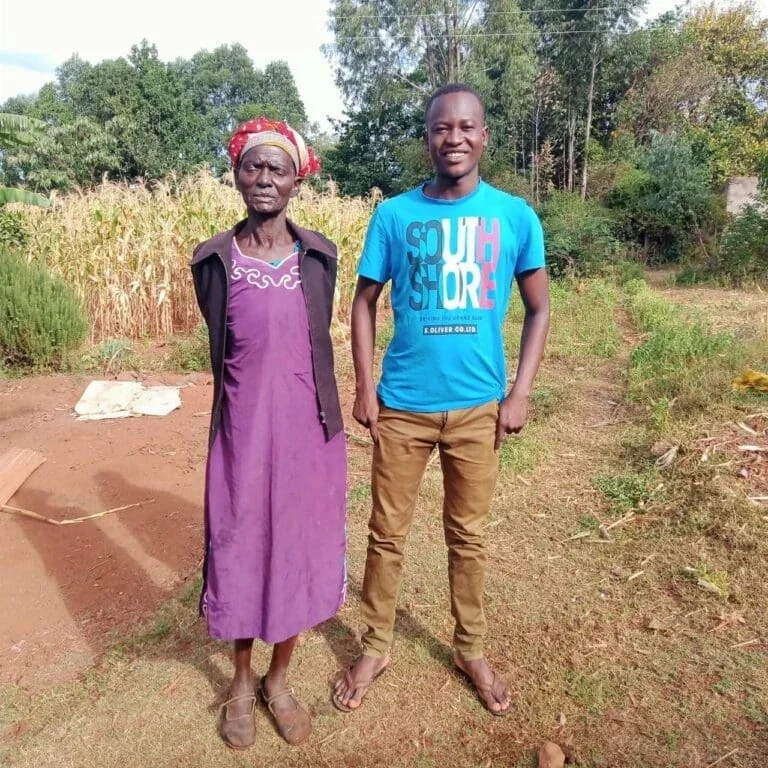
The Miracle in Morning Porridge
Odhiambo loved studying from the start, especially math. But persistent hunger made concentrating hard.
When he was 12, Cup of Uji arrived at his Homa Bay County school, bringing a bit of miracle in a serving of morning porridge.
“It changed my life,” Odhiambo said of Cup of Uji, a nonprofit that The Rockefeller Foundation helps fund. “It both motivated and supported me. My performance rose to above average.”
Today 21 years old, Odhiambo is pursuing procurement and supply chain management at Maseno University in Kisumu County.
“My grandmother tells me I am keeping her alive and adding value to her life,” he said.
“My top priority is to graduate and make her proud.”
Climate Change Increasing Food Insecurity
Climate change – specifically, longer dry spells and less predictable rainy seasons – is triggering increased food insecurity in Kenya, where 98 percent of all crops are rain-fed.
Acute hunger increased by 85 percent from 2016 to 2021 in Kenya, with an unpredictable climate and extreme weather acting as a “threat multiplier” to drive food insecurity, according to an Oxfam report that examined 10 countries identified as climate hotspots.
Most of the 10.3 million Kenyan children who attend primary school and 3.7 million enrolled in secondary school head to class without having eaten breakfast. More than a quarter of Kenya’s children under age five experience stunted growth.
Why it Matters
- 0%%
increase in acute hunger in Kenya from 2016 to 2021, worsened by climate change
- 0%%
of multilateral climate funds support child-responsive adaptations
- 0xx
return on investment for every dollar spent on school feeding
Broadly speaking, children globally bear the brunt of climate-triggered hardships, including hunger, and yet a meager 2.4 percent of multilateral climate funds support child-responsive activities, according to a UNICEF report released in September.
Cup of Uji’s founder, Francis Otieno Amonde, is well aware that climate change makes it harder for families to serve up a meal.
“We see the impacts even in the village where my grandparents are from,” he said. “They had land near a lake, and the lake has now swallowed that land. So we’ve lost land where food used to grow, and people are fighting over the agricultural plots that remain.”
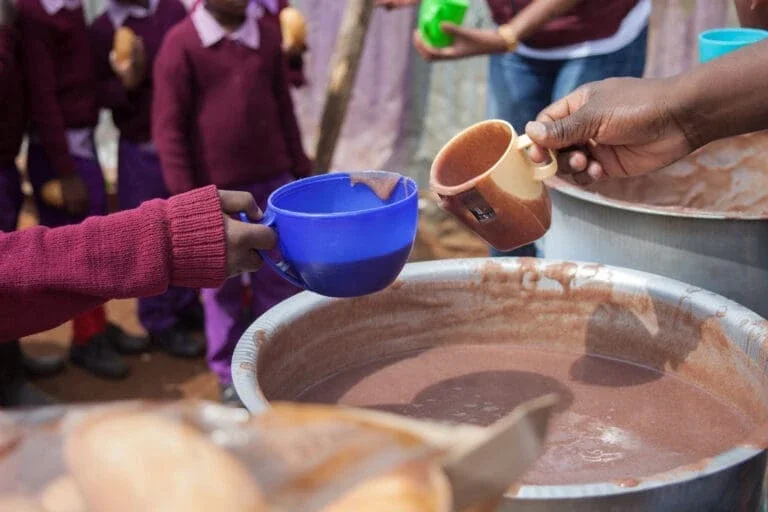
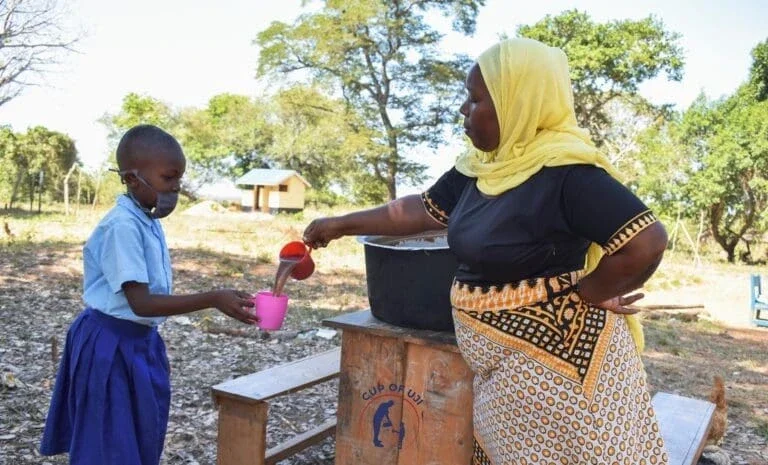
Cup of Uji’s Goal? To Grow
Amonde founded Cup of Uji in 2011 when he was still in college. It feeds over 10,000 students daily and is supporting the Kenyan government’s drive to achieve universal school meals by 2030. Amonde’s personal goal? To reach 100,000 students with Cup of Uji by the end of 2024, and then keep growing.
To further that objective, The Rockefeller Foundation grant is aimed at part in using the Athi River Primary School south of Nairobi as a pilot site to test several factors, including experimentation with different ingredients such as wholegrain maize, sorghum and bio-fortified beans.
Uji, a traditional breakfast meal, is rich in calcium and minerals, and can be cooked in about ten minutes. Per serving, it currently costs the equivalent of about 10 cents in U.S. currency.
“Making sure children have access to nutritious meals is one of the most important challenges we can take on,” said Betty Kibaara, Director, Food Initiative, The Rockefeller Foundation.
“Children are particularly vulnerable to food insecurity, which can cause irreversible damage to their physical, cognitive, and emotional development,” she said. “At the Foundation, our Food Team partners closely with the Kenyan government to help develop a roadmap to reach universal school feeding.”
From a tender age, Amonde felt compelled to help his community, especially its youngest members. As a five-year-old, he noticed that some children in his village lacked proper clothing, so he used his allowance to purchase baby clothes at the local Friday market.
During Sunday church services, as worshippers closed their eyes for the final prayer, he discreetly put the clothes in a bag at the back of the church so parents could take what they needed on their way out.
In high school, he gathered donations to help his fellow students pay mandatory school fees.
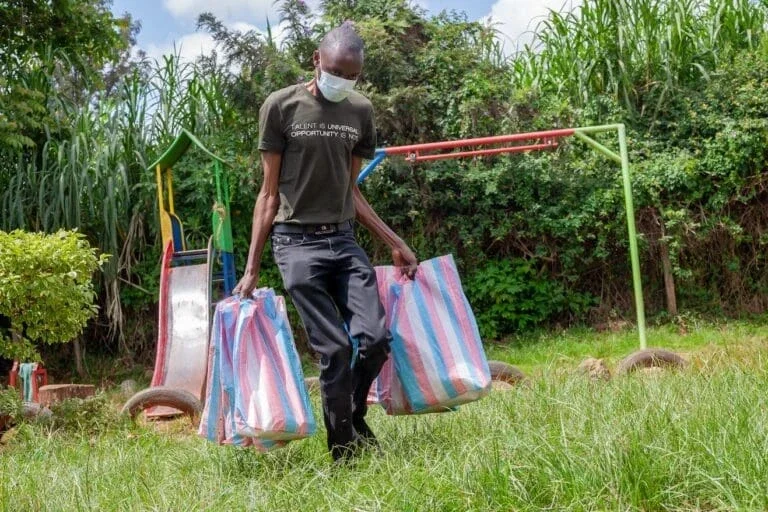
“Those Kids Became Bubbly”
In college, where Amonde was majoring in journalism and mass communication, he continued to nurture his early passion for helping children, becoming chairman of a club to donate to orphanages across Kenya.
While visiting the primary school where his mother taught, he realized that many children who had lost one or both of their parents were living with grandparents who could afford only one meal a day, given at night. So they were going to school hungry.
This recognition would give birth to Cup of Uji.
Amonde initially decided to focus on feeding just over 100 children, the very young students.
He wanted to give them rice and beans, but that was unaffordable. So he settled on uji, which cost him about 3,500 shillings a month—just over $23 U.S. dollars.
Results were quickly visible. “Those kids became bubbly,” Amonde said. “They looked forward to going to school. It was like they got a second life.”
Cup of Uji recently piloted a program to test cricket-based uji with 2,700 students as part of his effort to find ways to reach more young students like Odhiambo. The cricket-based meal is high in protein and amino acids.
“The taste was great, and the nutritional value is there also,” Amonde said, “It was a little too liquidy, so we will need to experiment with techniques for preparation. But as long as there are hungry students, we will keep growing and feeding more.”
More in this Matter of Impact Edition
Tiny Emerald Oases Offer Urbanites Sanctuary and Climate Resilience
A retired grocer offered a novel solution to make his corner of Bangkok greener and more walkable, and urban planners were listening.
Read MoreWant To Change Africa’s Future? For These Farmers, It Starts With a Tractor
Smallholder farmers in Africa are upping their productivity through an app that allows them to share tractors that are otherwise unaffordable.
Read More